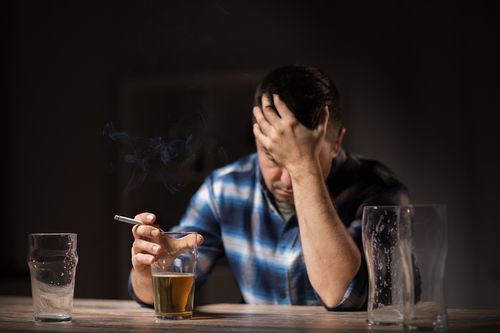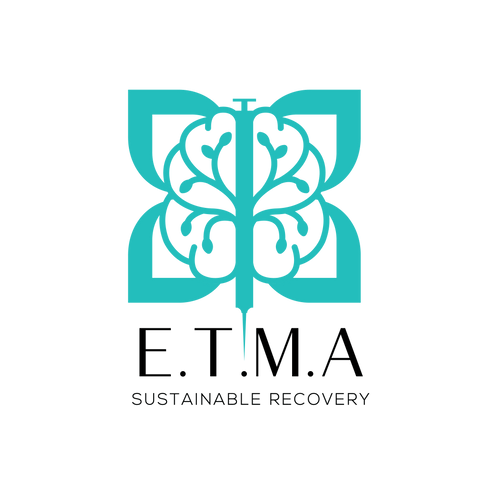Can you get addicted to alcohol?

The Cycle of Alcohol AddictionAlcohol Addiction TreatmentHome Remedies for Alcohol Addiction TreatmentWhat’s Next?
The short answer is Yes! Alcohol addiction, also known as alcoholism, is a disease that affects people of all walks of life. It’s a chronic, relapsing brain disorder characterized by an impaired ability to stop or control alcohol use despite adverse social, occupational, or health consequences. But what causes it, and what are its effects?
The Causes of Alcohol Addiction
Alcohol addiction doesn’t discriminate. It can affect anyone, regardless of their background or status. Factors such as genetics, environment, mental health, and established behavior patterns can all play a role. For instance, individuals with a family history of alcoholism are more likely to develop the condition. Similarly, those suffering from mental health issues like depression or anxiety may turn to alcohol as a form of self-medication, increasing their risk of addiction.
The Effects of Alcohol Addiction
The effects of alcohol addiction are far-reaching, impacting not only the individual but also their loved ones and society at large. Physically, heavy drinking can lead to liver disease, heart problems, and an increased risk of cancer. Mentally, it can lead to depression, anxiety, and other mental health disorders. Socially, it can strain relationships and lead to isolation.
The Cycle of Alcohol Addiction
Understanding the Cycle
Alcohol addiction often follows a cyclical pattern, which can be broken down into four main stages: preoccupation, intoxication, withdrawal, and negative consequences. Understanding this cycle can be crucial in identifying and addressing alcohol addiction.

Stage 1: Preoccupation
The cycle begins with a preoccupation or obsession with alcohol. Individuals may spend a significant amount of time thinking about their next drink, where it will come from, and when they can consume it. This constant preoccupation can lead to neglecting responsibilities and relationships.
Stage 2: Intoxication
The second stage is intoxication, where the individual consumes alcohol to the point of impairment. This stage is often characterized by a loss of control over drinking, with the individual drinking more or for longer than intended.
Stage 3: Withdrawal
After the effects of alcohol wear off, the individual may experience withdrawal symptoms. These can include anxiety, restlessness, irritability, and physical discomfort. To alleviate these symptoms, the individual may feel compelled to consume more alcohol, leading back to the intoxication stage.
Stage 4: Negative Consequences
Despite experiencing negative consequences due to their drinking, such as health problems, damaged relationships, or legal issues, the individual continues to drink. This is often due to the development of dependence, where the individual needs alcohol to function or feel normal.
Alcohol Addiction Treatment
The Importance of Professional Treatment
Overcoming alcohol addiction is no easy feat, but it’s not impossible. With the right professional treatment, individuals can reclaim their lives from the grips of addiction. Medical treatment for alcohol addiction typically involves a combination of medication, therapy, and support groups. At Solace Asia, we understand the complexities of addiction and offer a comprehensive treatment approach tailored to each individual’s needs.
The Detoxification Process
Detoxification, or detox, is the first step in treating alcohol addiction. It involves eliminating alcohol from the body and managing withdrawal symptoms. This process can be uncomfortable and, in some cases, life-threatening. Therefore, it should always be done under the supervision of a healthcare professional. At Solace Asia, our team of medical professionals ensures a safe and comfortable detox process, providing round-the-clock care to manage withdrawal symptoms and any potential complications.
The Role of Support in Recovery
Recovery from alcohol addiction is not a journey that one should walk alone. Support from family and friends plays a crucial role in the recovery process. It provides the individual with a sense of belonging and a network of people who understand their struggles and can provide encouragement and motivation. At Solace Asia, we believe in the power of community. Our support groups provide a safe space for individuals to share their experiences, learn from others, and build a network of support for their recovery journey.
Home Remedies for Alcohol Addiction Treatment
While professional treatment is essential, home remedies can also play a supportive role in the recovery process. These remedies can help manage withdrawal symptoms, reduce cravings, and promote overall health. However, they should not replace professional treatment and should always be used under the guidance of a healthcare provider.
Hydration and Nutrition
Staying well-hydrated and maintaining a healthy diet can help alleviate some withdrawal symptoms. Drinking plenty of water and consuming nutrient-rich foods can help the body recover from the effects of alcohol.
Supplements
Certain supplements, such as vitamins B and C, magnesium, and potassium, can help replenish nutrients lost due to heavy drinking. However, these should only be taken under the advice of a healthcare provider.
Mind-Body Practices
Practices such as yoga and meditation can help manage the psychological aspects of withdrawal. They can reduce stress, improve mood, and promote overall mental well-being.
What’s Next?
Alcohol addiction is a complex condition that often follows a cyclical pattern. However, with the right treatment and support, individuals can break the cycle of addiction and reclaim their lives. Whether you’re battling addiction yourself or supporting a loved one, remember that help is available. Don’t hesitate to reach out to Solace Asia. With courage, determination, and the right resources, you can break free from the chains of addiction and reclaim your life.

